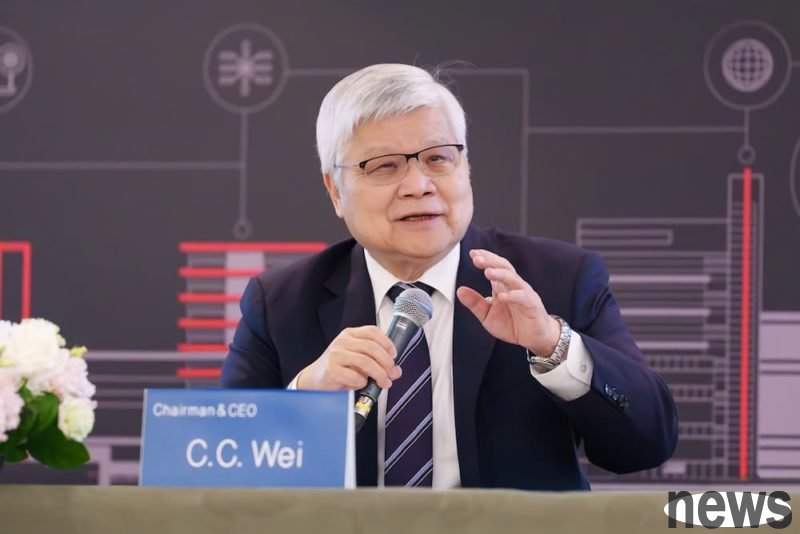When answering questions from legal persons at the press conference, TSMC stated that it has an optimistic outlook for unprecedented strong demand for artificial intelligence (AI), and admitted that the tight supply of advanced process and back-end...

When answering questions from legal persons at the press conference, TSMC stated that it has an optimistic outlook for unprecedented strong demand for artificial intelligence (AI), and admitted that the tight supply of advanced process and back-end packaging (such as CoWoS) production capacity continues. TSMC emphasized that although capital expenditures will remain flexible, its goal is still to ensure that revenue growth exceeds the growth of capital expenditures and demonstrates healthy financial discipline.
In response to the continued surge in demand for AI and the upward revision of growth rate expectations, Chairman Wei Zhejia said that the current demand for AI continues to be very strong and is even more optimistic than the company expected three months ago. The company had previously estimated that the AI accelerator market would grow at a compound annual growth rate (CAGR) of approximately a mid- to high-single-digit percentage from 2024 to 2029. However, based on current close communications with customers and end customers, the actual growth rate is "slightly better" than the mid- to high-single-digit percentage previously announced.
Wei Zhejia said that they have met with almost all key players driving the generative AI (Gen AI) revolution, and all customers have shown a more positive attitude than in the past few months. TSMC promised to update more precise numbers in early 2026, possibly once clearer data is available.
Regarding the restrictions in the Chinese market, Wei Zhejia emphasized that the impact is limited and he is still confident in long-term growth. Wei Zhejia pointed out that they are confident in the performance of their own customers, whether they are local customers or overseas customers. Even though opportunities in the Chinese market may be limited or underserved, the growth of the AI market is expected to be "very dramatic" and positive. Therefore, even with limited market opportunities in China, there is still confidence to achieve the annual AI market growth target of 40% or even higher in the next few years.
Analysts observe that although TSMC hinted in 2024 that CoWoS production capacity will be doubled, the market generally believes that even this expansion rate may not be able to meet the urgent needs of the current market. TSMC responded that all AI-related production capacity, including front-end process and back-end packaging capacity, is "very tight." Therefore, TSMC is working very hard to expand production to narrow the gap between supply and demand.
Specific expansion details or colors for CoWoS capacity in 2026, the company only stated that they are working to increase capacity, but specific numerical updates are not expected to be announced until 2026. The company stressed that its priority is to ensure that this gap can be closed.
The legal person pointed out that when TSMC sees higher growth opportunities, capital expenditures will increase significantly to prepare for the next leading process upgrade. However, in the current cycle, while revenue is up 50% from the previous peak in 2022, capital expenditures are only up about 10%. In this regard, Wei Zhejia emphasized that if the company does a good job, the growth of business or revenue should exceed the growth of capital expenditure. This is what has been achieved over the past few years. And higher levels of capital spending are always associated with higher growth opportunities.
Wei Zhejia emphasized that due to TSMC’s scale, capital expenditures are unlikely to suddenly drop significantly in any given year. Looking forward, management is confident that, assuming the company can continue to maintain excellent performance, it will continue to see revenue growth exceed capital expenditure growth in the next few years. At the same time, management expects 2026 to be a healthy year and is confident in continuing to invest in megatrends.
Previously, NVIDIA CEO Jensen Huang said that "Moore's Law is dead." Wei Zhejia pointed out that it is not that technology has stopped developing, but that performance cannot rely solely on chip technology. Customers emphasize overall system performance, not just Moore's Law. Because Moore's Law alone is not enough to meet requirements, TSMC works closely with customer teams to design not only front-end and back-end, but also packaging solutions to meet customer requirements for overall system performance.